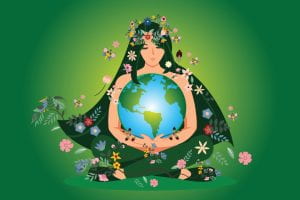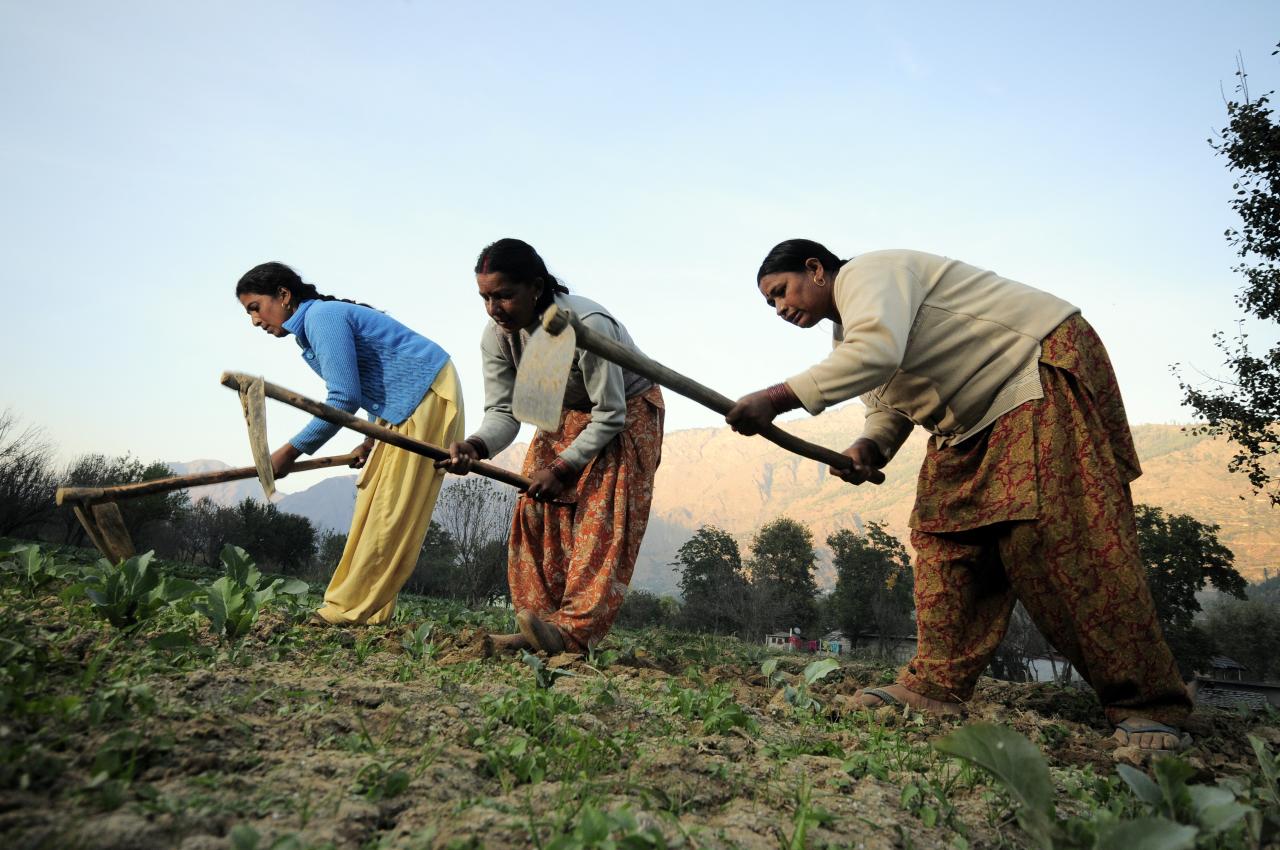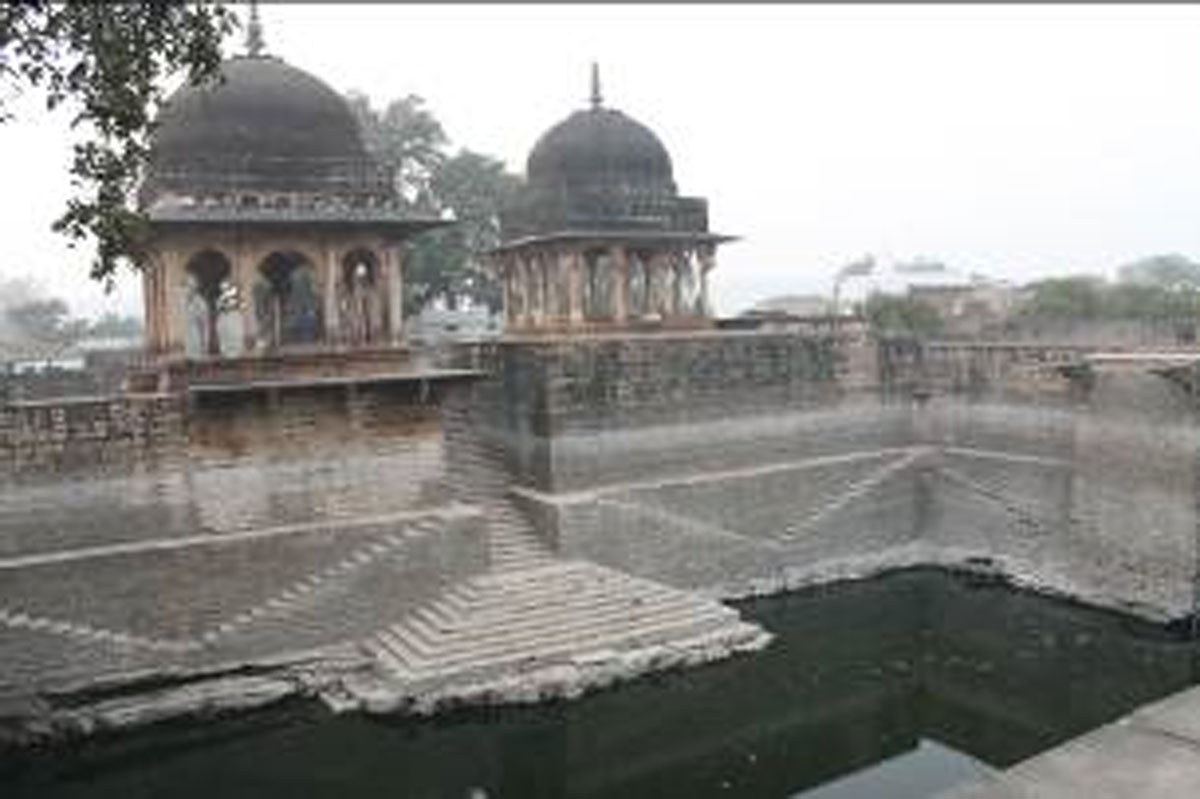 Just like most things in life, one size does not fit all. Why? The answer is simple, because we are not all the same. We are of different heights, weights, frames, different breast sizes, etc. We can even take this a step further and look at the fact that one article of clothing such as a dress, might work for one woman but not for another for different reasons. Perhaps one woman is a construction worker. A dress would not be functional for her to work in. Perhaps the dress is wool and has long sleeves. This would be great for someone living in a cooler climate but would not be practical (nor comfortable) for a woman living in the south of Florida.
Just like most things in life, one size does not fit all. Why? The answer is simple, because we are not all the same. We are of different heights, weights, frames, different breast sizes, etc. We can even take this a step further and look at the fact that one article of clothing such as a dress, might work for one woman but not for another for different reasons. Perhaps one woman is a construction worker. A dress would not be functional for her to work in. Perhaps the dress is wool and has long sleeves. This would be great for someone living in a cooler climate but would not be practical (nor comfortable) for a woman living in the south of Florida.
When we look at ecofeminism we should ask ourselves – Does one size fit all? Does the theory behind western ecofeminism apply equally to women in other parts of the world? Is it functional in the same way? In order for it to be a perfect fit, would imply that women everywhere in the world live in the same environmental climate, have the same types of jobs, live in the same political climate, are of the same socioeconomic backgrounds, have the same level and type of education/knowledge, experience the same levels and types of oppression, have the same access to resources, and so on and so forth. As we know, most of these things would vary from country to country. Herein lie both the differences and commonalties found by and between ecofeminism from a Western perspective and a non-Western perspective.
A Western ecofeminist perspective relies heavily on the idea that women and the environment have a shared connection as a result of their oppression which is imposed upon them by a system of patriarchy. Referring back to my previous blog, we examined Hobgood-Oster’s work who said, “Oppression of the natural world and of women by patriarchal power structures must be examined together and neither can be confronted fully” (Hobgood-Oster, 1). Non-Western “Feminist Environmentalism” might agree with some of this but extrapolates further on this idea. In order to understand the types of oppression and how it shapes women’s relationship with the environment, we must look more closely at aspects of women’s lives in these areas.
Quite often in order to examine women and their relationship with the environment in the Global South (specifically looking at nature and its resources) one must have a working understanding of each entity separately from one another in order to understand how and why they work together. When we look at the poor peasant or rural women of India for example, what are their roles when it comes to specific jobs? In India, it is typical for women to do hard laborious work such as the gathering of wood and fodder for fuel. It was not unusual for women to take part in the cultivation and oversight of their crops. They are also responsible for acquiring water. Would this same statement be true in the Western world with regard to the jobs we associate with the majority of most women? Here we see a difference between the types of jobs or labor that women have in different parts of the world. These jobs lead to different perspectives, connections, and experiences. They result in different types of knowledge.
Let’s look at class systems. When we look at women in India or areas of the Global South in terms of our discussion about ecofeminism, we are looking specifically at poor or rural areas. Typically, we are looking at examples of women in poor economic areas as they are more radically impacted by environmental degradation. Looking again at the poor peasant/rural women in India, they are most dramatically impacted by de-forestation which has created a shortage of wood and fodder needed for them to heat their homes and cook. They also sell these items and as a result of the lack of resources they have suffered income loss. Women have to go further and further to gather such items which makes their job harder and decreases the time they have to spend on other jobs like cooking which has led to a decrease in nutrition. This has had a ripple effect on their lives.
Displacement as a result of the continued commercial use of land has weakened women’s ability to network in the way that they are used. It is typical for them to rely on one another for economic and social support and even share labor and knowledge. This form of networking empowers women and strengthens their bargaining power amongst families in their community.
(Click image to learn more about deforestation.)
Another way these women have been impacted is water collection which is another job that women take care of. In most of the poor/rural areas they do not have running water. They rely on surface sources for their water such as ponds. Much of the water has been contaminated by pollutants found in the fertilizer and pesticides utilized by the commercial farms. Women are more vulnerable to illness and disease as a result.
Sadly, all of these elements of degradation continue to weaken one of the most important commodities that these women have to offer which is their Indigenous knowledge. Their experience with gathering food, cultivating crops, and their knowledge of other resources, is not being utilized. They have a wealth of information that could be used in conjunction with modern day science to create more long term solutions and sustainable systems.
As you can see, there are many ways in which situational circumstances can give varied experiences. Gender is a defining identifier of ecofeminism but so are other aspects such as class and a person’s politics of location. The politics of location is the way in which a person identifies and why they identify that way which is usually comprised of their experiences.
When looking at the Western and non-western world we can easily see commonalities that women share in terms of their relationship with the environment. Women are disproportionality impacted by certain environmental factors. Many women share the experience of being oppressed (discriminated against) when it comes to having an active role in areas of work, politics, or community life. Many women have the shared experience of giving birth and mothering which provides some (not all) with a sense of connection to one another and nature.
There is something to be said about the idea that women are connected because of their gendered experience and shared oppression, but to say that all women have the same experiences solely based on gender and the oppression that comes with it, is not accurate. To say that all women have the same relationship to the environment based on gender alone is not accurate. I would agree with the work and theory of Bina Agarwal who focuses on how oppression can look in different areas and that environmental degradation affects women differently based upon both gender and class. It goes without saying that women of a lower socioeconomic class system are impacted more by environmental degradation which is proof of a varying or increased level of oppression than others experience. They are invested in the environment because their survival depends on it.
https://www.indiawaterportal.org/
I think it is critical that women recognize the diversity among women so that we can cultivate and preserve the knowledge that is unique and integral to implementing policy that can create more sustainable systems. As Dr. Shiva stated when speaking about monopolies taking over crops, “That kind of dependency leads to increased poverty and increased ecological destruction” (Shiva & London, 6). She was pointing out that as we lose more and more of our Indigenous knowledge and become more dependent on corporatized agriculture, we not only lose what we had but we become dependent on a system that does not always sustain us or have long-term goals at its heart.
The solutions to sustainability and sustenance lie in the ability to see nature and its resources in their entirety and not simply as a source of one particular thing. Women in the global south understand this because through their culture, knowledge, and lived experience they have learned how to harvest purposefully and with respect to and for the land. They have a relationship with the environment that is unique and based on so much more than gender alone. As Bina Agarwal wrote of the Chipko women and their recognition of the forest and its uses she said, “Although the movement draws upon, indeed is rooted in, the regions Gandhian tradition which predates Chipko, women’s responses to go beyond the framework of that tradition and come close to feminist environmentalism in their perspective. This is suggested by their beginning to confront gender and class issues in a number of small but significant ways” (Agarwal, 148). I think the key there is the phrase “in their perspective” and it is from that – that we can truly examine environmental issues from an intersectional feminist lens. By honoring diversity among women, and not just using gender alone as a category of analysis, we can better capitalize on the unique knowledge we have to lend to environmental issues in order to create change.





Hey Teresa,
I really enjoyed the analogy you used in the beginning of your post. It’s completely true. One size of feminism, or ecofeminism, doesn’t fit every woman and we shouldn’t confine them to that box or label. Our shared experiences may bring comfort and help us to understand one another’s journey but it is something unique and individual to us.
To further your points in the second to last paragraph, Hobgood-Oster said “Oppression of the natural world and of women by
patriarchal power structures must be examined together or neither can be confronted fully” (1). In this I don’t think she was just referring to western societies. Her article explores ecofeminism on a global scale and I believe part of the oppression in India is because of these “patriarchal power structures”. Last week we discussed ecofeminism in a more broad sense but it really makes a different impact when we can see how women in India are directly affected.
Another point that I would like to add to your post is the general safety of women. In the UN article we had to read it mentions how women have to travel, by foot, to get water and how they have to share a bathroom with men. Both of these things make them more susceptible to attack or abuse. I understand that these are third world countries that are being discussed but violence against women is one thing I’ve never understood. It’s a move for power and dominance. Not only are women’s homes and livelihoods at risk, but their lives are too. Because of the very distinct line of gender separated responsibilities, women are lacking in education or obtaining a job. These situations occur in the west too. One size does not fit all, but there are some shared experiences that we can learn from.
Thank you for your comments Lizzy! I appreciate you sharing your perspective with me. I especially appreciate your adding to it with regard to the safety of women. I just finished a book, “The Girl With The Louding Voice” which was set in Nigeria. It focused on the violence that so many women are subjected to, particularly when they have to get water or share in public village bathrooms. The book was an incredible story and so relevant to much of what we are covering.
I absolutely agree with you about shared experiences. It is where I believe we often start when we collectively look to an issue that needs resolution. From there we can branch out and acknowledge the other areas of diversity.
Teresa – I applaud and resonate with your captivating opening on this blog post as well as the accompanied image. It’s absolutely true that one size does not fit all, and yet, sometimes we continue to believe that it can.
As you write about the varying roles of “jobs” that women across the globe, there most certainly isn’t one role that works for all women. As we continue to look at these global issues through an ecofeminism lens, we know that we are all connected, and yet our experiences can be vastly different.
The jobs that women in the global north have are very different than those of women in the global south. The jobs that women do in the different locations are functions of the world around them. Women of the global south are much more dependent on the environment around them for basic needs as well as sources of earning power. We can imagine the frustration when something like the weather or the environment (largely uncontrollable and unpredictable) can alter the course of one’s daily access to food/water or jeopardize one’s income.
Ecofeminist, Vandana Shiva speaks to how the industrialized and modern world has a very one-dimensional way of thinking (London). The global south and indigenous people across the globe have a much more wholistic and global view of the inter-connectedness of nature. Shiva also speaks of how increasing production of one thing will create scarcity in another. To your point, a one size fits all approach is not effective when looking at solutions to issues that women face. We know that women of the global north and south have vastly different day to day experiences, so we need to look at the issues they are faced with and come up with pertinent solutions.
You touch upon how the degradation of the environment weakens indigenous knowledge. Woman of the global south are connected to the earth. I think of my late grandmother, who had to leave high school to help her family with the chores on their farm. While she didn’t have a formalized education, the woman was a wealth of knowledge about so many “life” issues. Her connection to the earth, how to stretch any material for more than one could image its yield to be (she grew up in the Depression era and everything was saved, re-used, or repurposed), and her intuitive knowledge is more than I will ever posses, and it’s something that I’ll never be able to learn from high education.
I feel this way about the connectedness of women across the globe. Surely, women of the global north, who are educated, know a lot about managing time, households, finances, families, and careers have things to share with women of the global south. And the women of the global south who are in tune with nature, know where to find water, how to build fires, source food, care for ailments with the medicine that nature around them provides, have a lot of knowledge to share with women of the global north.
It’s exciting to think that through our continued understanding of ecofeminism, we might be able to help not only the women of the world, but help all of humanity as well as the ecological issues our planet faces.
London, Vandana Shiva and Scott. “In The Footsteps of Gandhi: An Interview With Vandana Shiva.” Global Research, 3 Feb. 2016, http://www.globalresearch.ca/in-the-footsteps-of-gandhi-an-interview-with-vandana-shiva/5505135.
Thank you Christine! You bring up many great points. It is important that we acknowledge that even within the global south, the roles that women have (work, family, community) can vary. Those differences can create a need to resolve issues in varying ways and with levels of priority that may not apply to “all” women. I like that you brought weather as a component that can dramatically change the concerns and issues from one region to another.
I especially loved that you shared about your Grandmother. What a great example of “knowledge” through lived experience. My Nana had a very similar story. She dropped out of school in the 4th grade to work in a bakery. She had to work in order to help the family. She too lived through the depression. I could not understand as a child why she was so “stingy” – now of course I understand it was frugality leveraged from fear. She re-used tea bags! And I kid you not, she would tell us how many squares of toilet paper we were allowed to use! I look at it now and I realize it was for her SURVIVAL and that of her family. As you so so so beautifully stated, “her intuitive knowledge is more than I will ever posses, and it’s something that I’ll never be able to learn from high education.” What a tribute – and I kid you not – that got me choked up! I think of her baking and explaining to me, “A handful of this, and a dash of that and $1.00 worth of nuts” (not a measured amount) – things like that will stay with me. My other Grandmother was much the same way. She was Italian and I do not think any of her recipes, household tips, or life hacks were written down. We know these things simply from the passing down of information though stories and observation as I watched my mother make her mother’s sauce, just as she watched her Mother before that.
Thank you for bringing such important memories to my attention in relation to not only what we are learning but to acknowledge the respect and gratitude I have for that knowledge.
Hi Teresa,
I think that the phrase “one size does not fit all” is a great way to sum up the readings for this week. I think it is interesting to look deeper at indigenous connection to the earth and how that is represented in our readings we see Agarwal dictate how “ over the years, there has been a systematic devaluation and marginalization of indigenous knowledge about species varieties, nature’s processes (how forests, soils, and water are formed and sustained interrelatedly), and sustainable forms of interaction between people and nature” (Agarwal 135). We see a juxtaposed idea in Shiva’s interview where she describes the “ phenomenon of stealing common knowledge and indigenous science “biopiracy” and “intellectual piracy.” These ideas juxtapose because we see an inherent devaluing of indigenous knowledge while also recognizing the value enough to steal the information and use it.
Thank you for commenting! I could not agree more about the biopiracy and intellectual piracy as it applies to Indigenous people and yet at the same time (as you mention) they devalue the knowledge and culture from which it comes! They take the pieces and parts from which they can benefit financially and dispose of the rest which reminds me of Agarwal when she speaks of the utilization of a part of a resource as opposed to respecting the entirety of the object/animal.
Hi Teresa,
Great post!
The issues of class and economic status are crucial to consider when discussing ecofeminism in the context of women in India and the Global South. As you mentioned, it is often the poorest and most marginalized women who are most impacted by environmental degradation, and who are therefore in the most urgent need of sustainable solutions.
It is also important to address the power dynamics that often prevent women from fully participating in environmental decision-making processes. Women are often excluded from positions of power and leadership in many societies, which can limit their ability to influence policy and shape environmental outcomes. I totally agree with you that addressing these issues requires a comprehensive and intersectional approach that recognizes the ways in which gender, class, and economic status intersect to create unique challenges for women. It also requires working towards the inclusion of diverse voices in decision-making processes and leadership roles. By recognizing and addressing these challenges, we can work towards creating a more equitable and sustainable future for all.
To truly address these issues, it is essential to consider the intersection of gender, class, and environmental issues. Policies and solutions must be developed with the input and involvement of these communities and must take into account the unique perspectives and needs of women who are most affected by environmental degradation. By recognizing the importance of community networks and the role of women in sustaining them, it is possible to develop more holistic and sustainable solutions that support both the environment and the economic well-being of these communities.
I think it is also worth mentioning women’s involvement in larger networks that support and advocate policy changes. One network I follow is WEDO, a global advocacy organization established by former U.S. Congresswoman Bella Abzug and feminist activist and journalist Mim Kelber, through the vision of many inspiring women, including Vandana Shiva. I recommend reading the “Women’s Participation on Party Delegations” found in their “Gender Climate Tracker”.
Here is the link if interested.
https://genderclimatetracker.org/womens-participation-party-delegations
Hey Rose! Thank you so much for commenting. We both agree that an intersectional approach to ecofeminism provides a more comprehensive analysis. I see a common theme here that is references in our readings this week. Just as we need to respect the diversity of nature (such as the variety of trees in India which no longer exists due to deforestation) we need to also respect and amplify the diversity among women so that we can better address environmental concerns with solutions that honor such differences. I think of the similarities between the trees as a group and us as “women” as a group. It is as if there are standards of what is valuable that result in the perspectives that come from the “top down” (patriarchy). This results in a generic or singular idea of what is beautiful, worthy, respected, etc.
I am definitely going to checkout “WEDO” as well as the “Gender Climate Tracker” resources. I really appreciate you taking the time to share that with me!